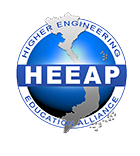Tempe, Ariz.—Son Thanh Nguyen, senior lecturer and faculty in computer science engineering at Ho Chi Minh City University of Technology in Vietnam, recently spent three months at ASU’s Tempe campus.
Nguyen’s visit was part of the Higher Engineering Education Alliance Program (HEEAP). The United States Agency for International Development (USAID), Arizona State University’s Ira A. Fulton Schools of Engineering and industry partner, Intel, have teamed with five universities in Vietnam on a collaborative initiative to improve the quality of Vietnam’s higher education curriculum and support the country’s growing high-tech industry.
The inaugural program started with 25 Vietnamese faculty members participating in an intensive six-week faculty development program held at ASU in July and August of 2010. As a result of the program, Nguyen came back to ASU to work directly with faculty at the Fulton Schools on specific initiatives. During his stay at ASU, Nguyen worked closely with the School of Computing, Informatics and Decision Systems Engineering (SCIDSE), one of the five schools in the Ira A. Fulton Schools of Engineering. He made observations in the labs, attended lectures and participated in capstone projects. This young program is already showing promising results. Nguyen says that working with ASU helped give him a better understanding of new instructional approaches and he has made substantial progress in crafting recommendations for strategy and implementation of engineering education. Equally important, he feels that the institutions have created a baseline relationship that can be built upon.
A changing educational and industrial environment
Vietnam faces two major challenges: improving a centrally-controlled education system and a growing industry that is providing less training in business skills. Nguyen says that the Vietnamese government is committed to making improvements in the quality of its educational system and will increase educational spending to 20 percent of GDP. But that funding comes with a caveat, the improvement plan must have specific measurements to prove the value of the effort.
To achieve this assessment process, Nguyen and other educators are working toward a plan that will enable their programs to reach and pass the Accreditation Board for Engineering and Technology (ABET) standards. This widely recognized standard provides a benchmark acceptable to both government and educators, and provides greater worldwide validity of the university programs.
In 2008, Vietnamese educators and administrators were sent to the U.S. to try to understand ABET requirements. The education system in Vietnam has been centrally controlled for many years and even today curriculum is heavily influenced by the government. Because of fundamental differences between the educational system in Vietnam and the U.S., relying on ABET creates a challenging mismatch. A second challenge facing educators in Vietnam is preparing graduates with the soft skills needed to meet Vietnam’s growing need for high level technology workers. Vietnam has top students in math and science.
Educational advances, promising partnerships, cont.
In the past, much of their educational experience focused on technical issues rather than on the non-technical aspects required by business. Nguyen says that within a global context, these non-technical aspects—communications, leadership and language skills—are equally important to graduates’ success.
Previously, companies in Vietnam were required to provide two years of this type of training to graduates. That has changed and now the responsibility to create work-ready engineers falls largely to the university. The goal of the HEEAP initiative is to help educators in Vietnam bridge these gaps and achieve their strategic objectives. Nguyen says that ASU’s recent redesign of its computer science program has provided a roadmap for his own efforts, enabling him to take home practical methods and tools suitable to the educational system in Vietnam.
Establishing a sustainable system
With degrees from Germany and a Ph.D. from the United Kingdom, Nguyen brings a global view to his efforts in Vietnam.
Nguyen says that even with a strong strategic plan in place for curriculum, universities in Vietnam will need to foster greater industry interaction to support internship and experiential opportunities for graduate students. Intel, a HEEAP partner, provides student work projects to foster hands-on learning. Nguyen says that more partners like this are needed as one company cannot support the entire system. Working with ASU, Nguyen sees the opportunity to build awareness and foster more industry collaborations to align curriculum to real-world needs and foster a strong high tech workforce.
“We appreciate the opportunity to work with Professor Nguyen. Our time together to brainstorm on curriculum improvement and assessment, as well as the pedagogy for engineering design, is valuable and productive. It allows us to ascertain the emerging role that ASU should play in global education of information technology. We believe that a trusted relationship has been established and will bring steady collaborations on teaching and research” says Yann-Hang Lee, professor and computer science engineering program chair, School of Computing, Informatics, and Decision Systems Engineering at ASU. Nguyen also cites the newly established relationship as a strong base for future collaborations such as exchange programs for students and faculty. Overall, he sees the chance to build a system that is sustainable and running on its own resources.
About the Higher Engineering Education Alliance Program (HEEAP)
The Higher Engineering Education Alliance Program is a collaboration among the United States Agency for International Development (USAID), the Arizona State University Ira A. Fulton Schools of Engineering, Portland State University Maseeh College of Engineering and Computer Science, industry partners and top technical universities in Vietnam to advance engineering education to prepare work-ready engineers.
The alliance focuses on developing and advancing interdisciplinary and applied engineering curriculum through instructional innovation. Working with the Vietnam Ministry of Education and Training and partner university leadership, the project helps train select professors to prepare students with the technical expertise, proficiency in English, and the soft skills and competencies needed to succeed in the emerging Vietnamese high-tech manufacturing sector. Industry partners play an integral role in shaping engineering training and curriculum, and benefit from access to highly trained graduates as well as university and business connections.

